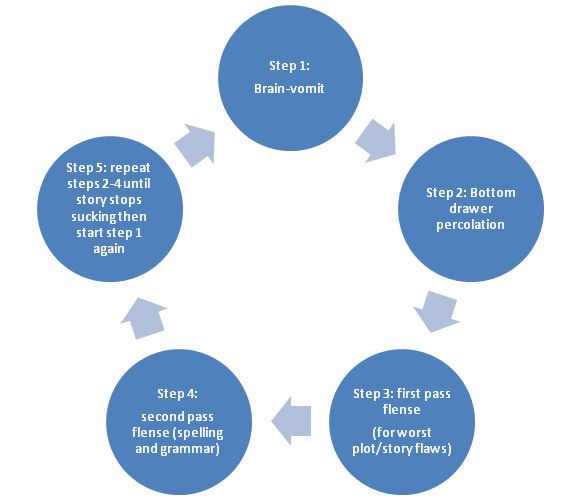Blog Archives
Getting in the zone – don’t wait for the zone to come to you
How to write by awesome and award winning author Angela Slatter
Last night during Masterchef I kept an eye on my Twitter feeds for #phdchat, started by the Thesis Whisperer. Although I’m not a PhD student, it is important to not only learn about the community I want to join and the people around it, but also the issues that come up when writing a massive thesis and being a researcher and academic.
So the conversation yesterday revolved around keeping in the writing mood and getting it done. There was a lot of mention of chocolate and treats!
I started out writing fiction from when I was around twelve. I’ve got a shelf of books dedicated to writing characters, plots, action scenes, and a few around writing articles or specific genres (of course, mostly fantasy). Right now I’m not in the fiction writing sphere, but if I learned anything from fiction writers it’s this: everyone is different! You may plan every step of the way, or free-write the first draft. You might focus on quantity, you might focus on quality. The below suggestions are ideas to help you figure out what your style of writing is. An absolute blank wordprocessor may be what works for you, where I at least need a selection of fonts (I write in pretty fonts, and then strip the format when I’m done to make it appropriate font-ed). One of the things you can’t rely on is only writing when you feel like it. You HAVE to write. You don’t have a choice at uni or in a research course about ‘aww, I don’t feel like it today’. Another thing, that was also mentioned on the hashchat, accept that whatever you do will need editing. It’s very rare the creature that writes one draft and that’s it. That’s partly why publishing books takes so long, it’s revising the editing between the editor (freelance or in-house) and the author.
Here’s my notes from last night:
- The Pomodoro Technique: Setting short time goals and rewarding yourself with breaks. Join a group for Shut Up and Write
- Set word based goals – 1000 words a day, 500 words a day – even if it’s a crap 500 or 1000 words, it’s still writing!
- Use Wordle to analyse even a sample of your writing to see the words you are using too much unconciously, or use the Writer’s Diet Test
- Edit finished text in a new file
- Write the PhD question on the header of every page to keep it in mind and help stay on track
- Use mind maps or concept maps to plan
- Put research/paper in progress/additional info on DropBox so you can access it anywhere
- Utilise verb lists. Try the Academic Phrasebank.
- Plan your writing a day or even week before your writing session
- End each writing session with a bullet point list of what comes next.
- Outline sections to help focus writing
- Write like Leonard, Edit like Sheldon
- Disconnect yourself from the internet. Use paper and pen, or if you need to be online, use something like Chrome Nanny to lock yourself out of social media.
- Blog, get some writing buddies or a group together – responsibility to share with others as a motivator for writing. Set yourself deadlines.
- Attend writing workshops or go on a writing retreat.
- Don’t write linearly – put in titles and develop ideas in sections, then review and revise between sections
- Take a break! Go for a run or to the gym, or go take a shower or bath
- Good to write conference papers and articles during PhD
- Read about writing as well as content and research processes
- Writing is something you learn as you go along, you won’t know it all upfront.
Suggested Programs:
Also check out:
NaNoWriMo – Rather than writing a novel during the month, write a thesis!
How to create a science blog
Developing Effective Research Proposals by Keith F Punch
